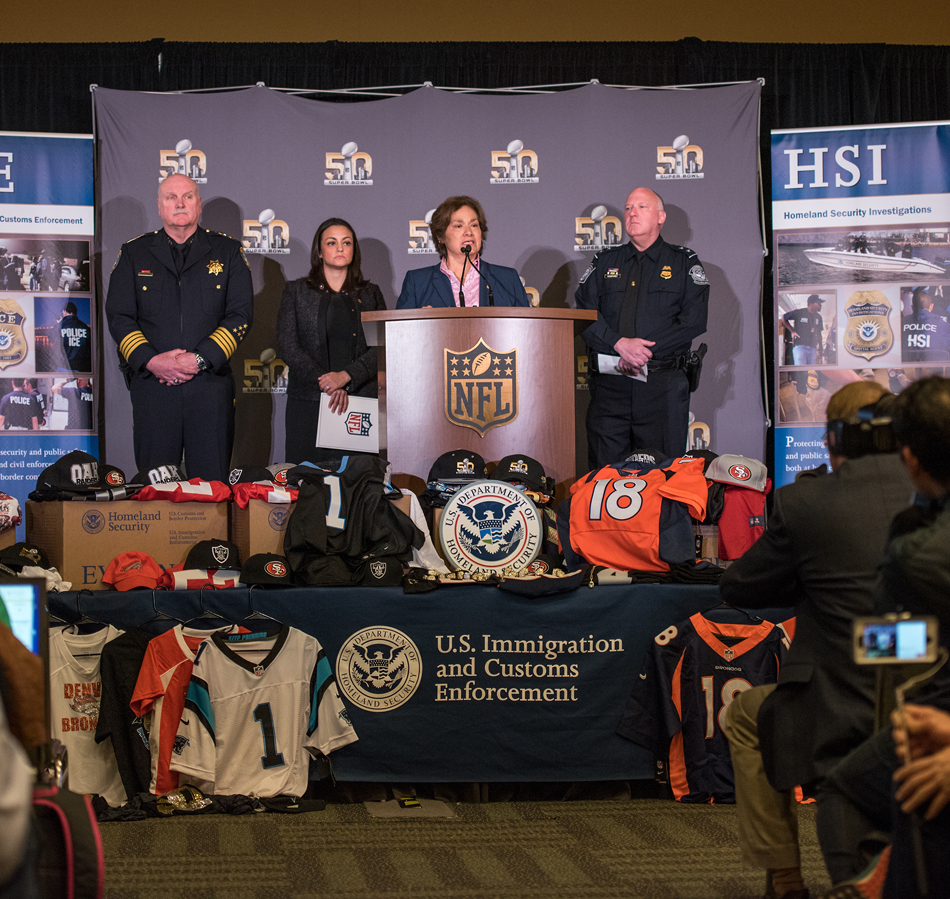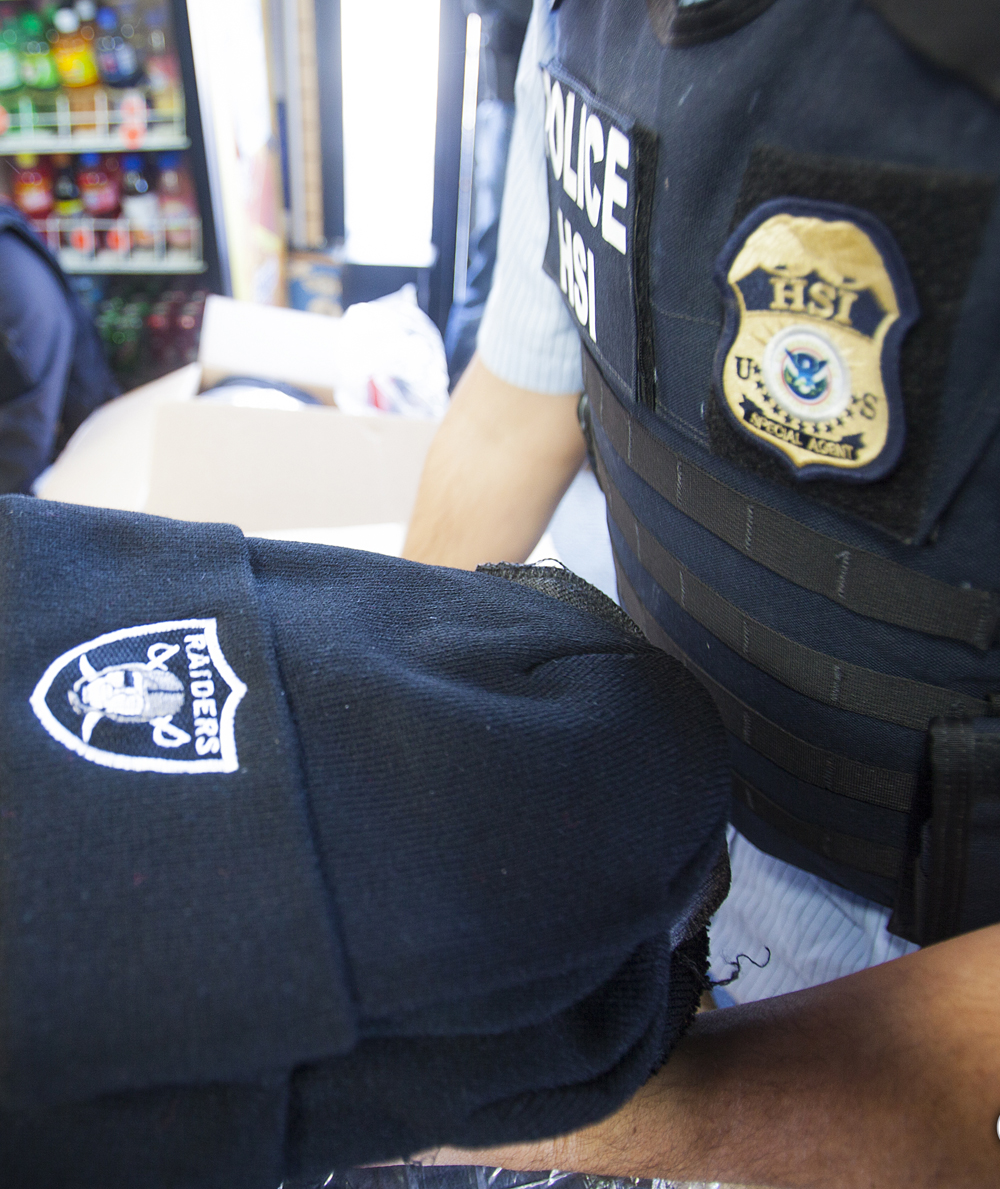'Operation Team Player' nets $39 million in fake sports merchandise
SAN FRANCISCO – U.S. Immigration and Customs Enforcement (ICE) Director Sarah R. Saldaña announced today that enforcement actions led by Homeland Security Investigations (HSI) resulted in the seizure of nearly 450,000 counterfeit sports-related items worth an estimated $39 million.
The results from Operation Team Player, an ongoing effort developed by the HSI-led National Intellectual Property Rights Coordination Center (IPR Center) to crackdown on the illegal importation of counterfeit sports apparel and merchandise, were revealed at a press conference hosted by the NFL with participation from ICE, U.S. Customs and Border Protection (CBP) and Bay-area law-enforcement agencies.
Special agents from HSI teamed with industry, CBP and local law enforcement to identify flea markets, retail outlets and street vendors selling counterfeit goods during the week leading up to Super Bowl 50. They seized fake jerseys, hats, cell-phone accessories and thousands of other bogus items prepared to be sold to unsuspecting consumers.
“The NFL's ongoing partnership with ICE and the IPR Center has resulted in a significant crackdown on the illegal sale of counterfeit merchandise and tickets,” said NFL Counsel, Dolores DiBella. “This collaboration protects all fans, including those participating in Super Bowl 50 festivities, who seek an authentic NFL experience.”
This year’s Operation Team Player, which also resulted in 41 criminal arrests and 35 convictions, began at the conclusion of last year’s Super Bowl. Throughout the year, the IPR Center led coordinated efforts with major sporting leagues to target contraband that impacts the economy, enables additional criminality and poses health and safety hazards to the public.
“Counterfeit products flood the supply chain with fake and potentially dangerous items while stealing from the rightful owners of trademarks,” said CBP Commissioner R. Gil Kerlikowske. “Working closely with our federal government partners and U.S. business, CBP identifies counterfeit products at the border before they enter the stream of commerce to protect U.S. businesses.”
As one of the U.S. government’s key weapons in the fight against criminal counterfeiting and piracy, the IPR Center is not only committed to closely coordinating with its 23 member agencies, but also collaborating with industry and anti-counterfeiting associations to develop initiatives, coordinate enforcement actions and conduct investigations related to intellectual property theft.
“Criminals selling counterfeit goods often use big events like the Super Bowl to trick consumers into buying high-priced, low-quality fakes. Not only do these criminal networks rip-off consumers, they have real consequences on the American economy,” said David Hirschmann, president and CEO of the U.S. Chamber of Commerce’s Global Intellectual Property Center. “A recent study from the U.S. Chamber of Commerce’s Global Intellectual Property Center found that innovative IP-related industries account for over 10 million jobs in the three states involved in Super Bowl 50. When it comes to their purchases this Super Bowl and throughout the season, consumers should always remember to protect themselves and the American economy by sticking with the brands they know and trust. ”




